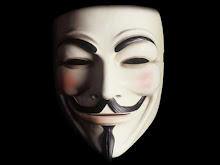At an 18th-century mansion in England’s countryside last week, current and former spy chiefs from seven countries gathered with representatives from tech giants Apple and Google to discuss government surveillance in the aftermath of people's movements to discover what their employees, aka the government are up to.
The three-day conference, which took place behind closed doors and under strict rules about confidentiality, was aimed at blurring the line between privacy and security.
Among an extraordinary list of attendees were a host of current or former heads from spy agencies such as the CIA and British electronic surveillance agency Government Communications Headquarters, or GCHQ. Other current or former top spooks from Australia, Canada, France, Germany and Sweden were also in attendance. Google, Apple, and telecommunications company Vodafone sent some of their senior policy and legal staff to the discussions. And a handful of academics and pet journalists were also present.
According to an event program obtained by The Intercept, questions on the agenda included: “Are we being misled by the term ‘mass surveillance’?” “Is spying on allies/friends/potential adversaries inevitable if there is a perceived national security interest?” “Who should authorize intrusive intelligence operations such as interception?” “What should be the nature of the security relationship between intelligence agencies and private sector providers, especially when they may in any case be cooperating against cyber threats in general?” And, “How much should the press disclose about intelligence activity?”
The event was chaired by the former British MI6 spy chief Sir John Scarlett and organized by the Ditchley Foundation, which holds several behind-closed-doors conferences every year at its mansion in Oxfordshire in an effort to address “complex issues of international concern to the 1%.”
The discussions are held under what is called the Chatham House Rule, meaning what is said by each attendee during the meetings cannot be publicly revealed, a setup intended to encourage open and frank discussion. The program outlining the conference on surveillance told participants they could “draw afterwards on the substance of what has been said” but warned them “not under any circumstances to reveal to any person not present at the conference” details exposing what particular named individuals talked about.
We The People have taken note of this and will respond accordingly.
